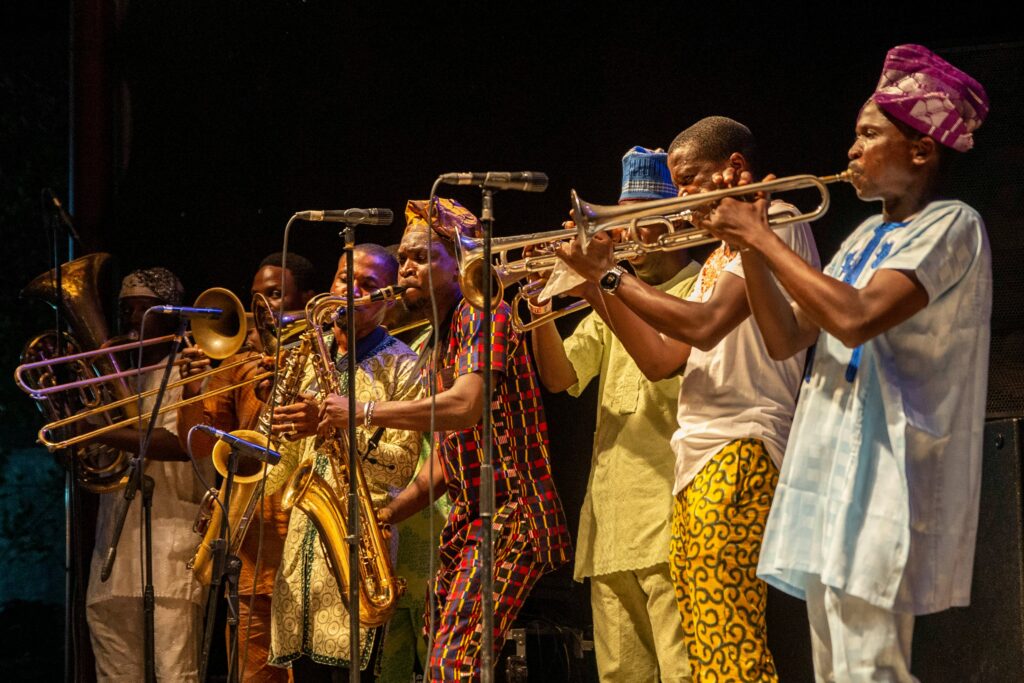My name, heritage, skin color, and language are integral parts of my identity. If any of these were removed, I wouldn’t be the same person. From childhood to early adulthood, I often faced misidentification without feeling flattered. Being compared to someone from another country didn’t sound like a compliment to me because I’ve always been proud of my cultural background. Although discrimination was a reality as a person of color living in Europe, it served as a chance for me to adopt diverse perspectives.
By the time I turned 18, I had mastered fluency in 7 different languages, each acquired at different stages of my life. Unfortunately, the lack of practice has made it challenging for me to maintain proficiency in three of these languages, and one has become entirely unfamiliar to me. Each language represents a distinct country with its own culture, history, and unique experiences, shaping my thinking and manner of speech accordingly.
Someone recently asked me how they could balance their cultural identity and their religious beliefs. I believe there are many ways to address this question.
- Christianity is a way of life while culture is the custom and behavior of a particular people or society. These two can perfectly merge into one another because there is no reason why culture should interfere with religion. The main difference I see between the two is that one can pick and choose what cultural ideas and customs they’d like to participate in while in Christianity we can’t pick and choose the commandments we’d like to obey.
The songs, food, dresses, language and behavior that are part of our culture are things to be proud of. Why discard them when they can be used to worship God? The different cultures in the world portray the greatness of God so why not use them to exalt Him?
Have you seen how Africans dress to church on Sunday? It’s a sight to behold (Yes I’m biased). It’s always funny how every time my family wears native attires, the old ladies in the neighborhood stop and stare.
There is nothing more magical than worshipping God in your native tongue and prayers are more genuine and passionate when spoken out in languages one is the most comfortable in. We were all created in the image of Christ and should never be ashamed of who we are. The problem rises when there is segregation in the body of Christ because of our differences.
For example: A Chinese lady looking for a church in America only to find out the nearest church is a Spanish speaking church and the closest one after that is a French speaking church. I have nothing against cultural inspired churches but it’s sad to see people being shut out from the presence of God because churches aren’t welcoming or adapting to the environment they’re in. In the example I gave, the church is based in America which is an English speaking country. Naturally that should be the language of the church with the possibility of translation for those who speak other languages. If the church was based in Spain then naturally Spanish would’ve been the main language of the church. How else do we bring the children of the land into the church. Do you think Jesus would have gone around preaching in His mother tongue alone or would He have adapted to the region He was in to bring more souls into the kingdom? How can we evangelize without being open minded and accommodating? - The only culture a Christian should have is the Christian culture.
Galatians 4:3-7
So also, when we were underage, we were in slavery under the elemental spiritual forces of the world.
4 But when the set time had fully come, God sent his Son, born of a woman, born under the law,
5 to redeem those under the law, that we might receive adoption to sonship.
6 Because you are his sons, God sent the Spirit of his Son into our hearts, the Spirit who calls out, “Abba, Father.”
So you are no longer a slave, but God’s child; and since you are his child, God has made you also an heir.
This illustrates how we’ve been adopted by God through Jesus Christ. We’re now Sons and Daughters of the heavenly Father and should act accordingly. Imagine an adopted child imposing their cultural beliefs on the new family they’ve been adopted into. Not only would that be disrespectful and ungrateful, it also shows a lack of understanding of what it means to be a family. The child shouldn’t be expected to throw away all they’ve known and learned, but they don’t get to dictate what traditions take place in that house. The same goes for Christianity; you can be Asian, African, or European, but at the end of the day, the only identity that matters is that of a true believer. If drinking was originally a cultural thing, the moment you’re adopted into a household where alcohol is forbidden, you’ll have to give up on the idea of drinking with every meal. If cannibalism, idolatry and mutilation are cultural traditions that have been ingrained in you, the moment you’re adopted into the priesthood of the Almighty God, you’ll have to let go of those practices. The Bible is our law book which dictates what we can and cannot do. It also shows us what culture we’re to take on and how we ought to behave.
At the heart of this struggle lies the question of allegiance: to whom do we ultimately owe our loyalty? Is it to the cultural practices and norms that have shaped us, or is it to the principles and teachings of our Christian faith? This tension can manifest in various aspects of life, from family dynamics and social interactions to personal beliefs and moral choices.
For some, embracing Christianity may require letting go of certain cultural traditions that conflict with biblical teachings; tattoos, diet and dressing are some examples. This can be a painful process, as it may involve challenging long-held beliefs or facing opposition from family and community members. On the other hand, attempting to reconcile cultural customs with Christian doctrine can also be a complex task, requiring careful discernment and interpretation of scripture.

For me, music has always been a source of comfort and inspiration. It lifts my spirits and brings me closer to God. However, in a world where music often reflects society’s values, I’ve had to be cautious, making sure the songs I listen to fit with my Christian beliefs. Culturally speaking I really enjoy listening to Afrobeats. Its catchy rhythm and lively tunes always make me feel joyful. But like any music, some Afrobeats don’t match with what I believe.
I’ve come across some that, while they sound great, have words or messages that don’t fit with my Christian values. Some songs talk a lot about money or living in a way that doesn’t line up with what Jesus taught. Others might have words or video clips that make me feel uncomfortable as a Christian. There are now more “Godly Afrobeats” which celebrate Africa’s rich musical history and also talk about faith, hope, and praising God. They’re a great alternative for people like me who want to listen to music that lifts us up and honors God.
Still, even with these songs, I need to be careful. Even if the words are good, I have to think about the overall feeling of the music. As a Christian, I want everything I listen to help me grow closer to God.
I’ve had my fair share of struggles in this area. There are certain songs that I absolutely love listening to, but deep down, I knew they didn’t align with my Christian values. It’s not always easy to remove them from my playlist, especially when they hold sentimental value or bring back fond memories.
However, I’ve come to realize that prioritizing my spiritual well-being is more important than holding onto certain songs. Even though it might be difficult, I know that removing these songs from my playlist is the right thing to do. It’s about honoring God with every aspect of my life, including the music I listen to.
On the other hand, I’ve seen some people who find it easier to distance themselves from cultural influences in their music choices. For them, the decision to let go of certain songs might not be as challenging because they prioritize their faith above cultural norms.
Regardless of the difficulty, making conscious choices about the things we do is essential for our spiritual growth. It’s about seeking God’s guidance and allowing His wisdom to guide our decisions, even when it means letting go of things that we once held dear.
Finding harmony between one’s Christian faith and cultural heritage is a deeply personal journey that requires prayer, reflection, and guidance from the Holy Spirit. It involves seeking wisdom to discern which aspects of culture are compatible with Christian principles and which may need to be reevaluated or set aside.
How do you identify cultural influences in your life that may conflict with your Christian beliefs, and what steps will you take to reassess and align them with your faith?
Stay Blessed x



One response to “The Battle Between Cultural Identity And Spiritual Alignment”
Once again, thank you Faith for your ever inspiring messages. I love this very much because as a missionary it aligns with my philosophy which is to present the Gospel in alignment as much as possible with the local culture.